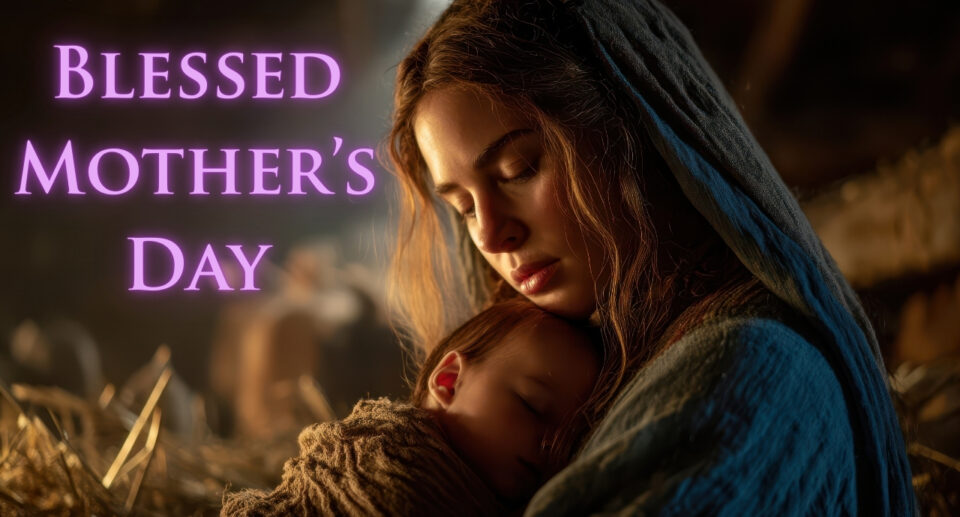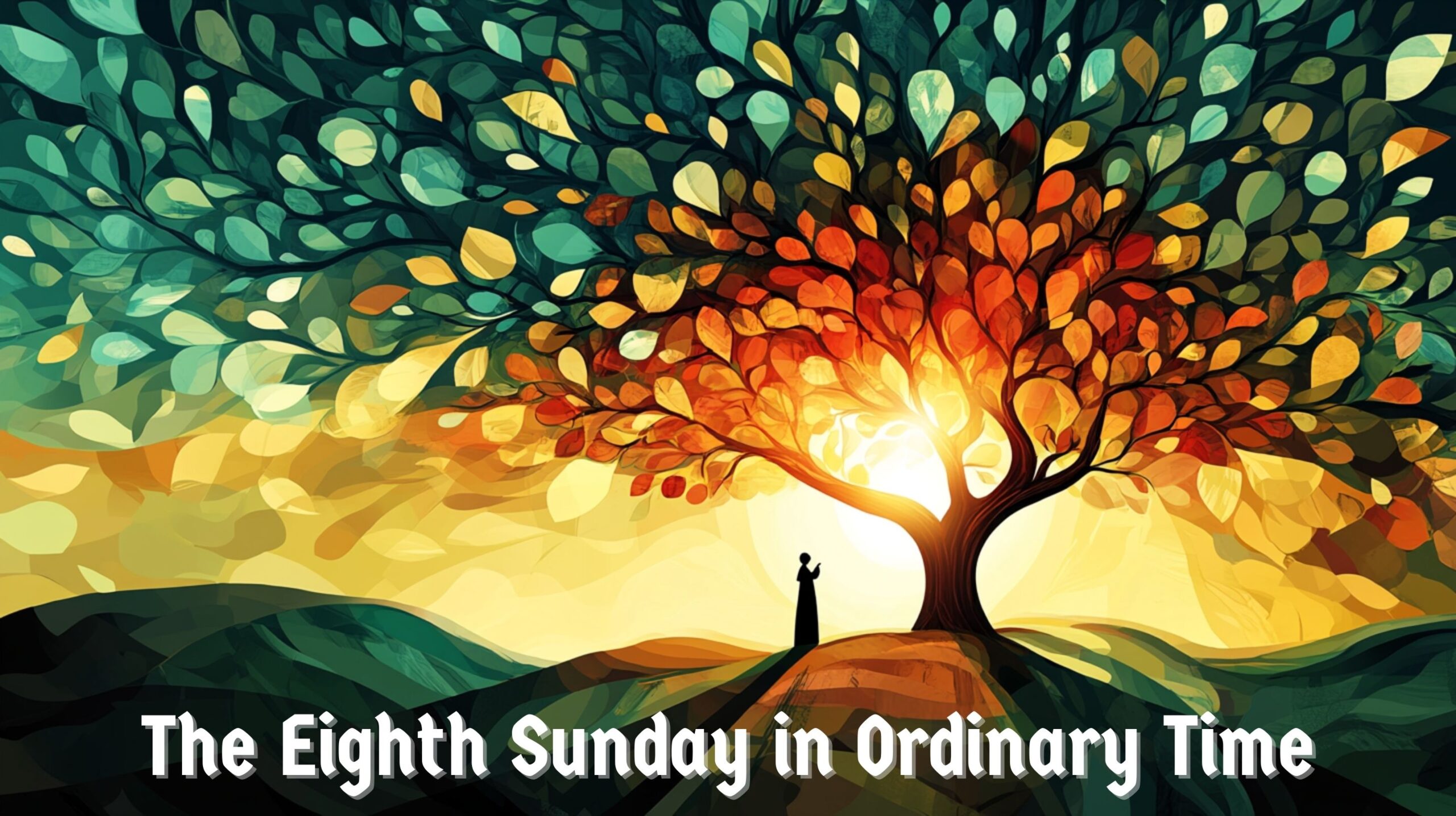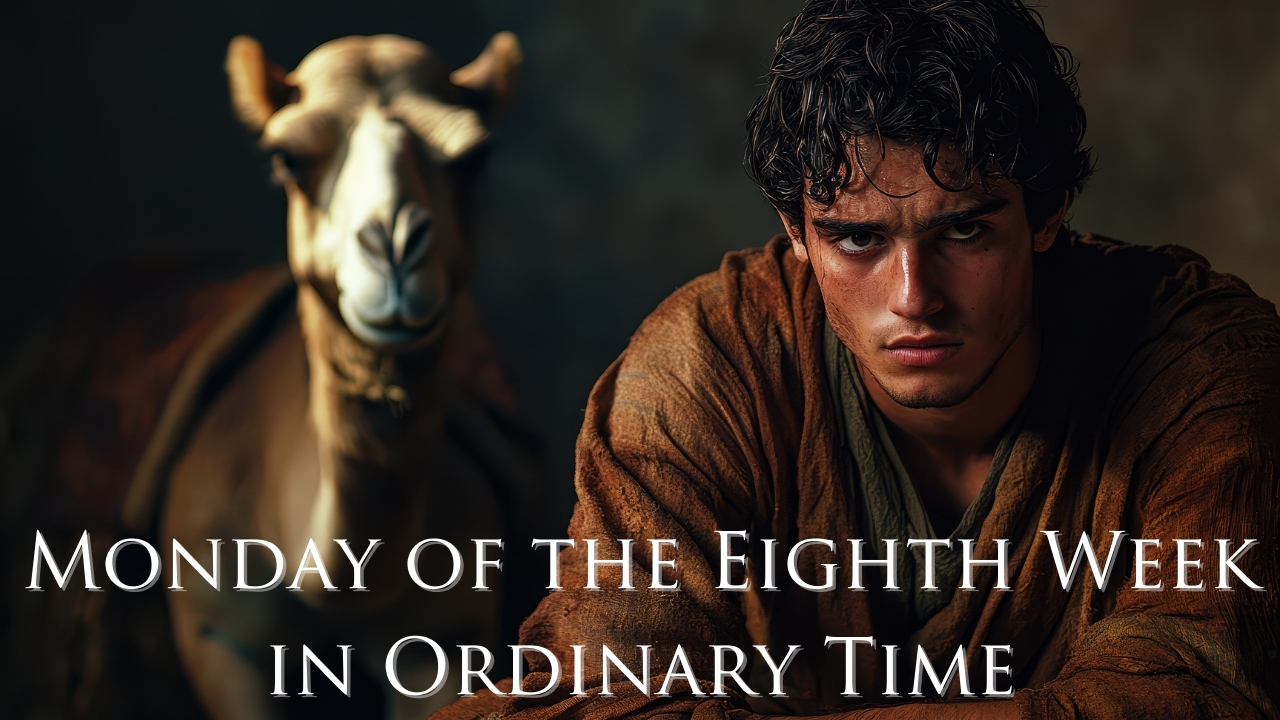Hearing the Shepherd’s Voice: Our Double Belonging | Daily Readings | May 11, 2025

May 11, 2025 – Daily Catholic Lectionary Readings for the Fourth Sunday of Easter (Good Shepherd Sunday).
On this Mother’s Day, discover the beautiful connection between the Good Shepherd’s care and a mother’s love. Explore how belonging to Christ’s flock shapes our identity and purpose in a world of competing voices.
Today’s reflection reveals:
- How we learn to recognize the Shepherd’s voice amid competing claims for our attention
- The security that comes from being fully known and fully loved by Christ
- How human belonging and divine belonging reinforce each other
- Mary’s unique role as mother of the Good Shepherd and our spiritual mother
Readings covered: Acts 13:14, 43-52; Psalm 100:1-2, 3, 5; Revelation 7:9, 14b-17; John 10:27-30
Perfect for anyone seeking to deepen their sense of belonging to Christ, honor mothers and maternal figures, understand Mary’s role in Catholic spirituality, or navigate the tension between cultural voices and the Shepherd’s guidance.
#CatholicDailyReadings #BibleStudy #GoodShepherdSunday #MothersDay #MarianDevotion
Hearing the Shepherd’s Voice: Our Double Belonging
“My sheep hear my voice; I know them, and they follow me.”
In these ten simple words, Jesus captures the essence of discipleship. Not complex theological formulations. Not elaborate ritual requirements. Just this: hearing, being known, and following.
Today, the Fourth Sunday of Easter, is traditionally called “Good Shepherd Sunday.” Each year on this day, we hear a portion of John 10, where Jesus describes himself as the shepherd who knows, leads, and protects his flock. It’s also Mother’s Day—a beautiful convergence that invites us to reflect on the nature of belonging, care, and the voices that shape our lives.
Our readings today explore what it means to belong—to God, to Christ, to a flock that transcends all human boundaries. They challenge us to consider whose voice we’re following in a world full of competing claims for our attention and allegiance.
In the first reading from Acts, Paul and Barnabas boldly proclaim the Gospel in Antioch of Pisidia. Initially welcomed, they soon face fierce opposition from those threatened by their message. When religious leaders reject them, they turn to the Gentiles, declaring: “We now turn to the Gentiles. For so the Lord has commanded us, ‘I have made you a light to the Gentiles, that you may be an instrument of salvation to the ends of the earth.'”
This radical inclusion—extending God’s covenant beyond traditional boundaries—stunned both its advocates and opponents. It reimagined who belonged to God’s flock. The Gentiles “were delighted when they heard this and glorified the word of the Lord,” while those who clung to exclusivity “stirred up a persecution” against the apostles.
Our psalm responds with joyful acknowledgment of our belonging to God: “We are his people, the sheep of his flock.” This belonging isn’t based on ethnicity, achievement, or perfect behavior, but simply on God’s creative and redemptive action: “He made us, his we are.”
The reading from Revelation presents a vision of ultimate belonging—”a great multitude, which no one could count, from every nation, race, people, and tongue.” These diverse believers stand united before the Lamb, having survived “the great tribulation.” Their tears are wiped away, their hunger and thirst satisfied by the Lamb who “will shepherd them and lead them to springs of life-giving water.”
Finally, in John’s Gospel, Jesus gives us the foundational image of belonging: “My sheep hear my voice; I know them, and they follow me.” He promises eternal life to his flock and declares the profound unity between himself and the Father: “The Father and I are one.” This ultimate belonging creates absolute security: “No one can take them out of my hand.”
These readings offer several insights worth pondering on this Mother’s Day and Good Shepherd Sunday.
First, belonging requires recognizing a voice. Jesus says his sheep “hear my voice.” In a world of constant noise and competing voices—social media, advertising, political rhetoric, peer pressure—discerning the Shepherd’s voice becomes our fundamental spiritual task. This discernment develops through familiarity—spending time in prayer with Scripture, participating in the sacramental life of the Church, and building community with other believers who help us recognize his voice.
A mother’s voice is often the first human voice a child learns to recognize. Even in the womb, studies show that babies respond to their mother’s voice differently than to other sounds. After birth, infants can distinguish their mother’s voice from others and orient toward it. This primal recognition foreshadows our spiritual capacity to recognize the voice of God. As we celebrate mothers today, we honor this first and fundamental experience of being known and called by name.
Second, belonging means being known. Jesus says, “I know them.” This isn’t superficial knowledge but intimate understanding that sees us as we truly are. The Shepherd knows each sheep individually—their strengths, weaknesses, wounds, and potential. Being fully known and still fully loved is the heart of belonging.
Mothers often know their children in this encompassing way. They recognize cries, anticipate needs, and understand unspoken feelings. A mother’s knowledge of her child mirrors God’s knowledge of us—comprehensive yet compassionate. On Mother’s Day, we celebrate this gift of being known.
Third, belonging leads to action: “They follow me.” Hearing and being known culminate in movement—aligning our lives with the Shepherd’s direction. This following isn’t blind obedience but trusting response to one who has proven worthy of our confidence. The flock follows because the Shepherd leads to “springs of life-giving water” and protects from harm.
Good mothers don’t just know their children; they guide them toward flourishing. They set boundaries that protect, create opportunities that empower, and model values that inspire. Their guidance, like the Shepherd’s, aims at their children’s ultimate well-being.
Today’s convergence of Good Shepherd Sunday and Mother’s Day highlights what we might call our “double belonging”—to our human families and to God’s universal family. These belongings ideally reinforce each other. Our experience of human love should illuminate divine love, while God’s perfect love compensates for the inevitable limitations of human relationships.
In the Catholic tradition, Mary occupies a unique position at this intersection of divine and human belonging. As Mother of God, she gave Jesus his human nature and first experience of human belonging. As our spiritual mother, she extends maternal care to all who belong to her Son’s flock. Her motherhood bridges heaven and earth, showing how divine and human love can perfectly complement each other.
The historical context of our readings enriches these connections. Paul and Barnabas faced fierce opposition for expanding the boundaries of belonging beyond traditional limits. The Book of Revelation addressed communities experiencing persecution for belonging to Christ rather than to the dominant culture. The Gospel of John was written for believers struggling to maintain their distinct identity while living in a society that rejected their values.
We face similar challenges today. Belonging to Christ’s flock often means standing apart from prevailing cultural currents. Following the Shepherd’s voice frequently leads in directions different from popular opinion. The security Jesus promises—”No one can take them out of my hand”—becomes especially precious when belonging to his flock brings criticism or exclusion.
Mothers often understand this tension between belonging and distinction. They create secure family identities while preparing children to engage the wider world. They balance protection with preparation for independence. They nurture unique personalities while fostering connection to something larger than self.
As we honor mothers today, we recognize how their love reflects the Shepherd’s care. Both know us personally, guide us purposefully, and sacrifice for our well-being. Both create spaces of belonging that shape our identity and purpose.
For those whose experience of human mothering has been wounded or absent, the Good Shepherd offers healing belonging. In the vision from Revelation, the Lamb “will shelter them” and “God will wipe away every tear from their eyes.” The security Jesus promises—”No one can take them out of my hand”—extends especially to those whose human relationships have failed to provide security.
The Church, as mother, also offers belonging that transcends biological ties. Paul and Barnabas created new community for the Gentiles who had been excluded from traditional religious belonging. The “great multitude” in Revelation finds unity across every human division. The flock Jesus shepherds includes sheep “that do not belong to this fold” (John 10:16).
On this Good Shepherd Sunday and Mother’s Day, we celebrate our fundamental identity as those who belong—to God, to Christ, to one another. We recommit to hearing the Shepherd’s voice amid competing claims for our attention. We receive the gift of being fully known and fully loved. And we follow the One who leads us toward life in its fullest expression.
For mothers, today offers affirmation of their irreplaceable role in creating spaces of belonging that reflect divine love. For all of us, it provides opportunity to express gratitude for those who have helped us hear the Shepherd’s voice and find our place in his flock.
Together, we rejoice in the psalm’s confident declaration: “We are his people, the sheep of his flock.” And we draw security from Jesus’ promise: “No one can take them out of my hand.”






